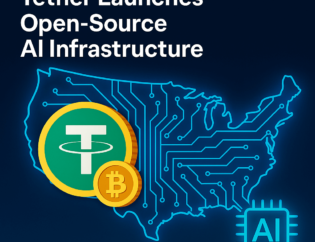
For years, the regulatory landscape for digital assets in the United States has been fragmented and uncertain. The lack of a unified framework created hesitation for investors and pushed many promising fintech and crypto ventures to more permissive jurisdictions. That could soon change.
The proposed Financial Innovation and Technology for the 21st Century Act (FIT21), passed by the House of Representatives in May 2024, marks a pivotal moment for the industry. It introduces the most comprehensive crypto regulation ever seen in the U.S., aiming to bring clarity, stability, and growth opportunities to the digital asset market.
FIT21 sets out to remove regulatory ambiguity by clearly delineating the roles of the two major federal regulators:
-
The Securities and Exchange Commission (SEC) will oversee restricted digital assets, including token offerings and initial sales.
-
The Commodity Futures Trading Commission (CFTC) will regulate digital commodities such as decentralized cryptocurrencies, and will supervise trading platforms and brokers.
Additional highlights of the bill include:
-
The right to self-custody: Individuals and institutions retain control of their own crypto assets.
-
Disclosure requirements: Market participants must share transparent and accurate information about their offerings.
-
Streamlined registration: A simplified process will allow emerging projects to register and operate efficiently.
-
Joint advisory committee: A collaborative SEC-CFTC body will coordinate rulemaking and reduce regulatory overlap.
For both U.S.-based and international projects, FIT21 introduces several key advantages:
-
Regulatory clarity: Clear jurisdiction reduces the risk of enforcement confusion and paves the way for long-term planning.
-
Investor confidence: Transparent rules and institutional-grade protections will attract capital and accelerate adoption.
-
Lower entry barriers: Easier registration and clear compliance paths open the door for innovation.
-
User protection: Security standards and custody rights build trust and improve user experience.
As SEC Commissioner Hester Peirce noted on X:
“FIT21 doesn’t just regulate—it modernizes. It gives innovators the rules to build within, not around.”
While the EU has implemented MiCA (Markets in Crypto-Assets Regulation), its one-size-fits-all approach can stifle innovation—especially in decentralized or non-custodial applications. In contrast, the U.S. is aiming for a more nuanced model with FIT21: one that evolves as assets mature and shift in nature.
This dual-agency model also reflects an effort to regulate based on function, not just form—something many global markets have struggled to achieve.
For international crypto and fintech founders, the U.S. is signaling not just openness, but structured opportunity.
The FIT21 bill is more than just a piece of legislation—it’s a message: the U.S. is ready to lead in digital asset innovation, not just enforcement. It balances investor protection with entrepreneurial freedom, creating fertile ground for fintech and crypto startups to scale with confidence.
While the bill still awaits Senate review, its bipartisan support in the House marks a major shift in the tone and trajectory of U.S. crypto policy.
If you’re building in crypto or fintech, there may never be a better time to explore the U.S. market.
Our services https://stategate.com/services/
Feel free to contact us directly https://stategate.com/contact/






